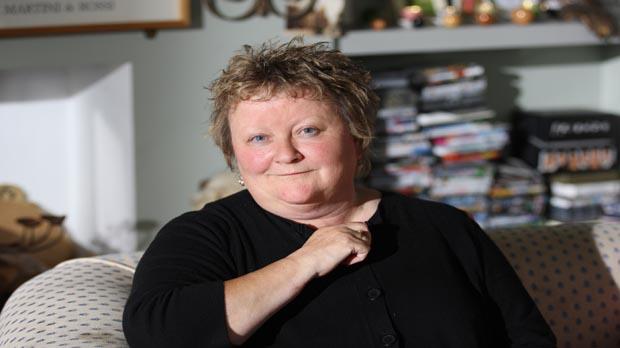
“Deborah agreed to take part in a trial as she was keen to help other cancer patients in the future. "If taking part in a trial means others might be helped then I’m very happy with that."
Please note - this trial is no longer recruiting patients. We hope to add results when they are available.
This trial is comparing 2 diets to help women who are at an increased risk of breast cancer to lose weight.
We know that being overweight can increase your risk of developing breast cancer. We also know that losing weight can reduce the risk. This trial is part of a programme to find the ideal diet to help people lose weight.
The trial team consider that an ideal diet
In this trial, the researchers are comparing a diet of low calorie healthy eating every day, with an intermittent diet. The intermittent diet is a low  and low calorie diet for 2 days in a row each week, and a healthy diet for the other 5 days.
and low calorie diet for 2 days in a row each week, and a healthy diet for the other 5 days.
The aim of the trial is to compare these 2 diets to find out which might be the ideal diet for women who are at an increased risk of developing breast cancer to lose weight.
You may be able to join this trial if you are a woman going to the Family History Clinic at the Genesis Breast Cancer Prevention Centre, University Hospital of South Manchester and all of the following apply. You
 of 30 to 45 and you have a body fat percentage of at least 40% (the trial team will work this out for you), or your waist is between 88 cm (34½ inches) and 140cm (55 inches)
of 30 to 45 and you have a body fat percentage of at least 40% (the trial team will work this out for you), or your waist is between 88 cm (34½ inches) and 140cm (55 inches) yet)
yet)You cannot join this trial if any of these apply. You
The trial team need 26 women to join this randomised trial. You are put into a 1 of 2 groups by a computer. You cannot choose which group you are in.
Women in group 1 have a low carbohydrate diet for 2 days in a row each week and a healthy Mediterranean diet for the remaining 5 days.
Women in group 2 have a low calorie healthy Mediterranean diet every day.

The researchers will explain your diet plan to you. The trial lasts for 8 weeks.
You record what you normally eat for a week before starting your diet plan and then continue recording what you eat for the 8 weeks of the trial. You can do this online or in a paper diary.
The trial team will ask you to fill out a questionnaire about your physical activity before you start your diet, at week 4 and week 8.
You have an MRI scan at the start of the trial. You have it early in the morning at the Wolfson Centre. You cannot eat or drink anything (apart from water) after the meal you have the evening before. When you have the scan, you need to lie still for up to 45 minutes and you will be asked to hold your breath for periods of 10 seconds.
On the same day, you have a test that measures how your body reacts to sugar at the endocrine clinic at the Christie Hospital. This is a short walk away from the Wolfson Centre. This visit will take 5 hours in total.
A researcher will put a small plastic tube (cannula) into a vein in your arm. They will take 3 blood samples over 10 minutes. After this, you have a drink with a lot of sugar in it. The researcher will then take a blood sample every 30 minutes for 3 hours.
After your scan and the sugar test, the hospital will give you a complimentary meal at the hospital restaurant.
On another day later the same week, a member of the trial team at the Genesis Breast Cancer Prevention Centre will measure your weight, waist, hips and bust. The trial team will also do a test to measure the amount of calories your body uses (your metabolic rate). To do this you lie down in a room underneath a hood for 15 minutes. You cannot eat for 5 hours before having this test. This visit takes 2½ hours. You have the metabolic rate test and the measurements done again in week 8.
You have another MRI scan, and sugar test in week 7 and week 8.
Every 2 weeks you see the dietician at the Genesis Breast Cancer Prevention Centre. They will phone you during the week between each visit to see how you are going.
Both the diet plans are safe and meet your nutritional needs.
We have more information about having an MRI scan.
Please note: In order to join a trial you will need to discuss it with your doctor, unless otherwise specified.
Dr Michelle Harvie
Genesis Breast Cancer Prevention Appeal Ltd
NIHR Clinical Research Network: Cancer
Pancreatic Cancer UK
University Hospital of South Manchester (UHSM)
If you have questions about the trial please contact our cancer information nurses
Freephone 0808 800 4040

“Deborah agreed to take part in a trial as she was keen to help other cancer patients in the future. "If taking part in a trial means others might be helped then I’m very happy with that."